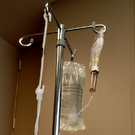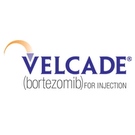
Preliminary results from an ongoing Phase 1/2 clinical trial suggest that elotuzumab, in combination with Revlimid (lenalidomide) and low-dose dexamethasone (Decadron), may have potential in the treatment of multiple myeloma. The findings were presented at the American Society of Hematology’s 51st Annual Meeting at the beginning of last month.
Dr. Ravi Vij from the University of Washington in St. Louis, co-author of the study, remarked, “The trial showed very high rates of response when elotuzumab is given …
Read the full story »

The 2009 American Society of Hematology (ASH) Meeting showcased several presentations on Zolinza (vorinostat), a histone deacetylase inhibitor developed by Merck Pharmaceuticals that is currently investigated for the treatment of multiple myeloma.
Zolinza alters the way a cancer cell’s DNA creates proteins, which is important in cancer treatment because such a drug can slow down cell proliferation, minimize mutations in DNA and control cell death.
Zolinza With Revlimid And Dexamethasone
Preliminary data from an ongoing Phase 1 study …
Read the full story »

A new study suggests that Velcade (bortezomib), in combination with other drugs, is a better treatment method for patients with newly diagnosed multiple myeloma than the previous standard drugs.
The study, titled “Velcade, Intravenous Cyclophosphamide, and Dexamethasone (VCD) Induction for Previously Untreated Multiple Myeloma (German DSMM XIa Trial),” will be presented on December 6 at the American Society of Hematology (ASH) Meeting in New Orleans.
The researchers compared a drug cocktail consisting of Velcade, cyclophosphamide (Cytoxan), and
Read the full story »

As many multiple myeloma and other blood cancer patients know, it is illegal to pay bone marrow donors. But last week, the Institute for Justice (IJ) filed a lawsuit to overturn this ban. If the IJ is successful, physicians, donors, and especially patients may be significantly affected.
The IJ reports that more than 1,000 Americans die each year waiting for a donor match. “Myeloma patients are among those who need a transplant,” said Jeff Rowes, the IJ’s lead attorney on …
Read the full story »

A study recently published in the Journal of Clinical Oncology suggests that thalidomide (Thalomid), used in conjunction with double autologous stem cell transplants, leads to better outcome in younger patients with newly diagnosed multiple myeloma.
Autologous stem cell transplants use stem cells collected from the patient’s own bone marrow rather than from a donor. In a double transplant treatment, two transplants are given to the patient within a six-month period.
The study authors retrospectively analyzed the data of …
Read the full story »

In a recent study published in the journal Blood, researchers reviewed previously reported research and found a general correlation between “complete response” to therapy and survival for multiple myeloma patients.
Complete response, which is defined as a normal bone marrow evaluation and a negative immunofixation (a test to detect abnormal antibodies in the blood or urine), has been correlated to patient outcome for many blood cancers. However, conventional chemotherapy has rarely produced complete responses in myeloma patients.
The significance of …
Read the full story »

Researchers at St George’s, University of London have developed a new directory that could lead to quicker and more targeted treatment for multiple myeloma and other cancer patients.
The directory identifies 40,000 genes that can cause cancer and lists the effects on each gene by three drugs used in the treatment of multiple myeloma.
The three drugs included in the directory are thalidomide (Thalomid), Revlimid (lenalidomide), and Actimid (pomalidomide, CC-4047). Both thalidomide and Revlimid are approved for …
Read the full story »
